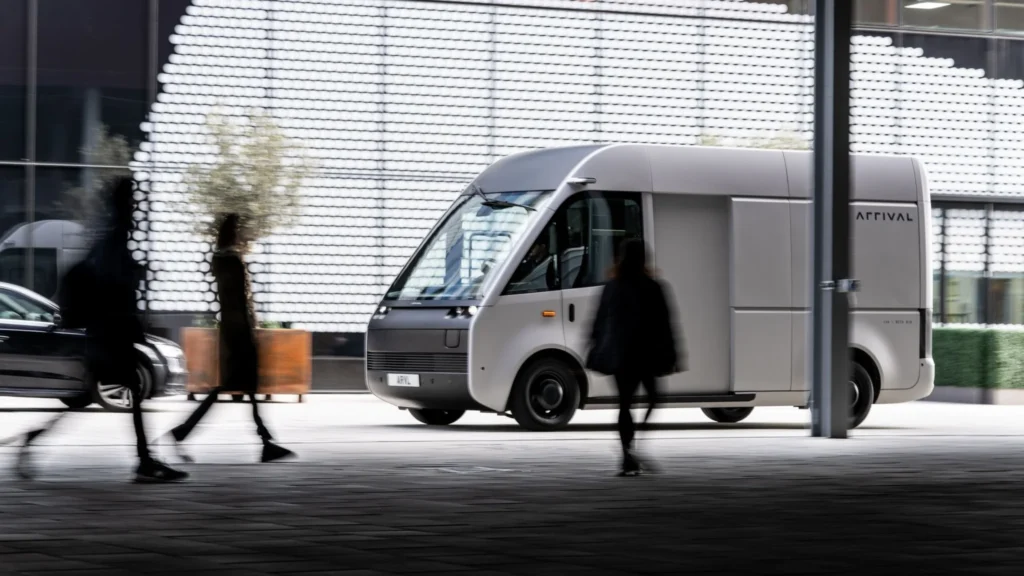As businesses increasingly shift toward sustainability, commercial electric vehicles (CEVs) are becoming an attractive option for companies looking to reduce their environmental footprint and lower long-term operational costs. However, the upfront cost of purchasing electric vehicles can be a hurdle for many businesses, particularly small and medium-sized enterprises. Securing low-interest loans for electric commercial vehicles can make the transition more affordable, allowing businesses to leverage the benefits of CEVs while managing their cash flow.
This article provides a comprehensive guide on how businesses can qualify for competitive loan rates when financing commercial electric vehicles.
Build a Strong Business Credit Profile
One of the most important factors in qualifying for low-interest loans is having a strong business credit profile. Commercial vehicle lenders assess a business’s creditworthiness to determine the risk involved in lending. A higher credit score often translates to lower interest rates, as it signals to lenders that the business is financially responsible and less likely to default on the loan.
To build and maintain a strong business credit profile:
- Pay bills on time: Timely payment of bills, including existing loans, credit card balances, and vendor invoices, is crucial to maintaining a good credit score.
- Manage credit utilization: Keep your business’s credit card balances low relative to your total available credit. A high credit utilization ratio can negatively impact your credit score.
- Monitor your credit report: Regularly review your business credit report for errors or discrepancies and dispute any inaccurate information that could hurt your score.
- Establish credit early: If your business is new, consider opening a small line of credit or applying for a business credit card to start building your credit history.
By demonstrating responsible financial management, your business can improve its credit score and increase its chances of securing low-interest loans for commercial electric vehicles.
Consider Government-Backed Loan Programs
Many governments are committed to reducing carbon emissions and promoting the adoption of electric vehicles, which has led to the creation of various loan programs specifically designed to help businesses transition to CEVs. Government-backed loan programs often come with lower interest rates and more favorable terms than traditional loans, making them a valuable resource for businesses looking to finance commercial electric vehicles.
- U.S. Small Business Administration (SBA) Loans: In the U.S., the SBA offers loan programs that can be used to finance electric vehicles. SBA loans, such as the 7(a) loan program, provide low-interest rates and extended repayment terms, making them a good option for businesses seeking to purchase CEVs. While the SBA itself does not provide the loans, it guarantees a portion of the loan amount, reducing the risk for lenders and allowing them to offer lower rates.
- Clean Energy Finance Programs: Many states and municipalities offer clean energy finance programs that provide low-interest loans for businesses investing in electric vehicles or other green technologies. For example, California’s Clean Vehicle Rebate Project (CVRP) offers financial assistance to businesses purchasing CEVs, while New York’s Drive Clean Rebate for Commercial Vehicles provides rebates for electric trucks and buses.
By researching and applying for government-backed loans and incentives, businesses can access lower interest rates and reduce the overall cost of financing commercial electric vehicles.
Provide a Detailed Business Plan
Lenders often require businesses to submit a detailed business plan when applying for loans, particularly for significant purchases like electric commercial vehicles. A well-prepared business plan can demonstrate to lenders that your company has a clear vision for growth, financial stability, and a strategy for repaying the loan.
Your business plan should include:
- Financial projections: Include detailed financial statements, including profit and loss projections, cash flow forecasts, and balance sheets. This helps lenders understand your company’s financial health and repayment capacity.
- Justification for the loan: Explain how purchasing electric vehicles will benefit your business, including potential cost savings from reduced fuel and maintenance expenses. Highlight any contracts or opportunities that the new vehicles will help you secure, demonstrating how the investment will generate revenue.
- Environmental and sustainability goals: Emphasize your company’s commitment to sustainability and how the transition to electric vehicles aligns with your environmental goals. Some lenders may prioritize businesses that are actively working toward reducing their carbon footprint, particularly if they have access to green financing programs.
A compelling and thorough business plan can improve your chances of securing low-interest financing by showing lenders that your investment in electric vehicles is part of a broader strategy for business growth and sustainability.
Consider Leasing or Rent-to-Own Programs
In some cases, leasing or rent-to-own programs may offer lower interest rates and more flexible terms compared to traditional loans. These programs allow businesses to spread the cost of electric vehicles over time without the large upfront expense of purchasing them outright. Leasing may also provide lower monthly payments, which can help with cash flow management.
- Leasing: With a lease, your business can use the CEVs for a fixed period, typically with lower monthly payments than a loan. At the end of the lease term, you may have the option to purchase the vehicle, renew the lease, or upgrade to a newer model. This option is particularly attractive for businesses that want to keep up with technological advancements in electric vehicles without committing to ownership.
- Rent-to-Own: Rent-to-own programs combine the flexibility of leasing with the option to own the vehicle at the end of the rental period. Payments made during the rental period often contribute toward the eventual purchase of the vehicle. This can be a cost-effective way to finance commercial electric vehicles while maintaining the option to build equity in the vehicles over time.
By exploring these alternative financing options, businesses may be able to secure more favorable interest rates and terms that make transitioning to electric vehicles more affordable.
Research Lenders Specializing in Green Financing
Not all lenders are equally equipped to offer competitive rates for financing commercial electric vehicles. Some financial institutions specialize in green financing, which is designed specifically for businesses investing in environmentally friendly technologies. These lenders often offer lower interest rates, favorable repayment terms, and additional support for businesses looking to reduce their carbon footprint.
- Green Banks: Green banks are financial institutions dedicated to accelerating the adoption of clean energy technologies, including electric vehicles. These banks offer low-interest loans and other financing solutions for businesses that meet sustainability criteria.
- Credit Unions: Some credit unions also offer green financing options, including low-interest loans for electric vehicles. Credit unions tend to offer competitive rates and may be more flexible with their lending criteria compared to traditional banks.
When seeking financing for commercial electric vehicles, it’s worth researching lenders that specialize in green financing to secure the most favorable loan terms.
Key Takeaways
Transitioning to commercial electric vehicles is a significant investment, but securing low-interest loans can make the process more financially feasible for businesses. By building a strong business credit profile, taking advantage of government-backed loan programs, preparing a detailed business plan, and exploring alternative financing options such as leasing or rent-to-own, businesses can increase their chances of qualifying for competitive loan rates. Additionally, researching lenders that specialize in green financing can help businesses access lower interest rates while aligning with their sustainability goals.
Ultimately, the transition to electric vehicles offers substantial long-term benefits, including lower operating costs, reduced environmental impact, and potential tax incentives. By carefully navigating the financing process, businesses can make the switch to electric commercial vehicles both affordable and sustainable.







